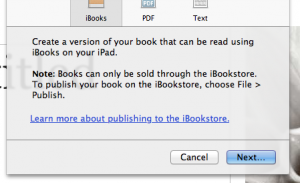After last week’s tremendous public outcry over the SOPA and PIPA bills forced the TV and movie industry and their hired hands in Washington DC to retreat, Paul Graham announced that he was interested in funding startups that might have what it takes to “kill hollywood.”
Graham is a successful software developer and entrepreneur who started YCombinator to take advantage of the mismatch between the traditional venture capital business model and the realities of post-dotcom boom Internet startups. He concluded that SOPA and PIPA were symptoms of a large but dying industry that could do “a lot of damage to civil liberties and the world economy on [its] way down.” Hastening their demise would be both a broad public good, and a good business.
Graham stated the problem broadly, asking entrepreneurs to think about what people are going to do for fun in 20 years, instead of what they do now. Graham sees the potential for continued growth in games, and other types of sites, but also sees alternatives to the ways movies and shows are currently produced and distrubuted.
A few days later, on Hacker News, YCombinator’s social news community, someone posted a link to Amazon Studios. Amazon Studios is at least a few months old, but if I’d heard about it before, I’d forgotten it. Amazon Studios says :
We believe 21st-century technology creates ways to make and share movies and scripts more easily than ever.
- Get noticed. Your work will be shared with a global community of filmmakers and fans, who can offer revisions and advice.
- Get your movie made. The goal of Amazon Studios is to work with Hollywood to turn the best projects into major feature films.
They run monthly contests with cash prizes for writers and film-makers.
Amazon Studios positions itself as a partner to Hollywood, but in thinking about it, I realized that Amazon already has Hollywood pretty much surrounded. Over the last 20-30 years, the overall importance of revenue from first-run TV, and movie box office has declined as a growing number of broadcast and cable TV channels created demand for TV show reruns, and revenues from movie rentals and DVD sales grew. Lately though, DVD sales have been declining, and BlueRay sales haven’t compensated, because more and more people are turning to digital distribution and streaming through Netflx, iTunes, and Amazon.
In other words, the makers of TV shows and movies have long depended on Amazon for a significant amount of their revenue, first from DVD sales, and now, increasingly from digital downloads. The Kindle Fire was aimed squarely at enhancing Amazon’s position in this market. It’s also worth considering that Amazon uses free digital downloads as an incentive to get people to subscribe to Amazon Prime.
On the other side, we have Amazon Studios, gets Amazon involved in the creation of new movies. They may be working with Hollywood, but part of their appeal is clearly to creative people who were, in one way or another, shut out of Hollywood.
This is similar to how Amazon approached the eBook market. They did deals with publishers to get the rights to distribute books on the Kindle. To secure those deals, they surely used their position as a major sales channel for traditional books. Once the Kindle was off to a good start, they started enabling independent authors and small publishers to sell their own eBooks through Amazon. Now they are starting to do deals directly with authors, taking over the role of publishers for both vetting and editing books, and underwriting their creation with cash advances.
So, how long before Amazon starts funding some of the movies themselves? Â It might take longer, because movies are more complicated to make than books. Also, theatrical release is still an important part of the movie business; box office receipts are an important revenue, and it helps generate the awareness needed to drive the sale of the digital downloads. Â Its also worth keeping in mind, that Amazon owns IMDB, which helps moviemakers find the collaborators they need to get movies made, and helps consumers find out about movies worth watching.
All of this puts Amazon in a strong position vs Hollywood, but its even stronger if you step back and consider how important the book industry is to the movie industry. One of the most valuable film franchises in the last few decades has been the Harry Potter films, which, if it isn’t obvious, owes its success to the Harry Potter books. The same is true for many other films. The movie industry reduces its risk by drawing on successful books. Â Doing so gives them added confidence in the underlying story, and provides them with a built in audience, and built in cultural relevance. Unfortunately for Hollywood, Amazon seems likely to gain a favorable position for the film-rights for more and more books.
This is good for Amazon, but also, I think, for Apple. Apple doesn’t encircle Hollywood in quite the same way Amazon does, but iTunes is an important distribution channel for movies and TV shows. Another thing Apple has is cash, lots of it. Movies are often financed, in part, by distribution rights. Wariness over Amazon’s position is going to drive the movie studios towards Apple (just as of fear of Apple’s power drove the record labels towards Amazon), Apple’s ability to help fund new movies and shows, in exchange for favorable distribution rights, seems like it will draw them even closer to Apple.
We shall see soon enough, I guess…
